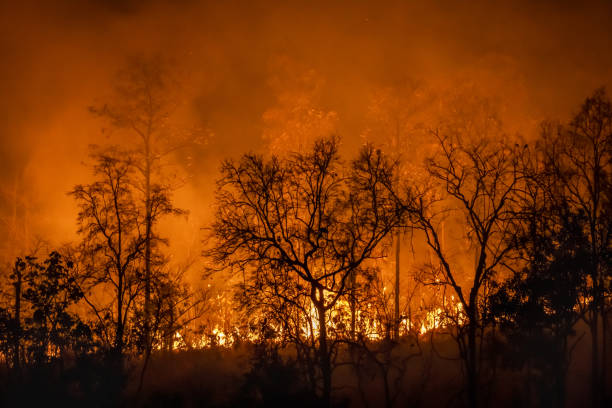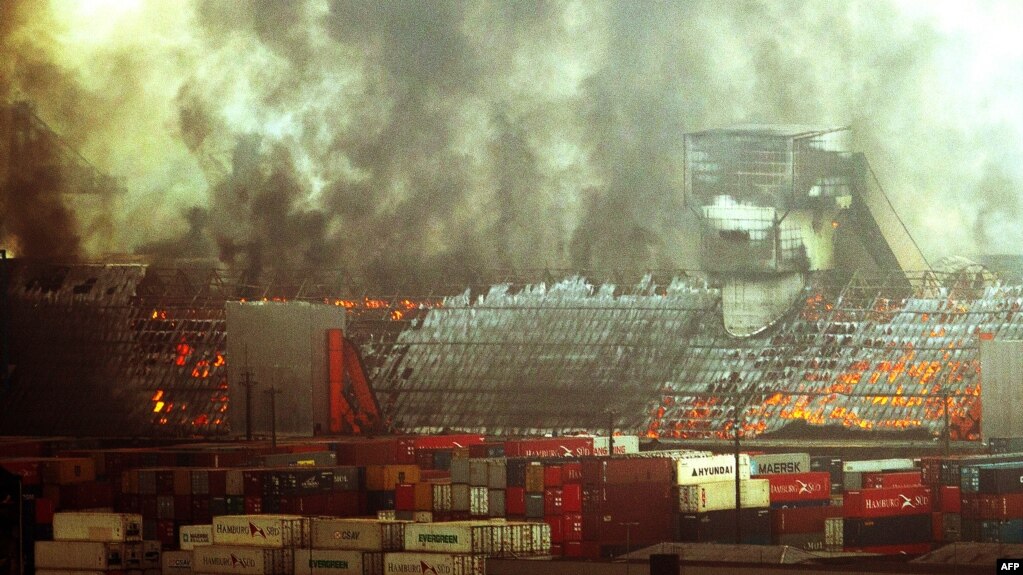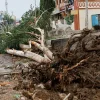Brazil is facing an unprecedented environmental crisis as wildfires rage across the nation, prompting the environment minister to declare a state of “war” against the flames.
The wildfires, which have spread from the Amazon rainforest to the rural south-east, have enveloped major cities like Brasília and São Paulo in thick smoke, disrupting daily life, grounding flights, and forcing schools to close.
Environment Minister Marina Silva addressed the crisis following an emergency meeting with President Luiz Inácio Lula da Silva.
Silva described the recent surge in fires, particularly in São Paulo state’s countryside, as “unusual” and alarming. Federal police are investigating the causes of these fires, with three arrests already made.
Concerns are growing that Brazil might be experiencing a repeat of the 2019 “Day of Fire,” when politically charged fires devastated the Amazon rainforest during Jair Bolsonaro’s presidency.

Silva, a veteran environmentalist, criticized the current situation, noting that multiple municipalities have been ablaze simultaneously, a phenomenon rarely seen in her extensive experience combating fires. She emphasized the severe impact of the crisis, describing it as a “veritable war against fire and crime.”
This year, Brazil’s biomes, including the Amazon, Pantanal wetland, and Cerrado, have endured severe fires. The Amazon has seen a near-record high of fires in the first half of 2024, attributed to a severe drought exacerbated by the climate crisis and the El Niño phenomenon.
Cristiane Mazzetti, a forest campaigner for Greenpeace Brasil, highlighted the vicious cycle of burning. “Brazil is trapped in a cycle where wildfires exacerbate climate change, which in turn fuels more extreme droughts and fires,” she explained.
In São Paulo, the fires have captured national attention. Rural sugarcane fields and ranches are engulfed in flames, and social media has been flooded with alarming images of thick black smoke and fiery skies.
In Campinas, a resident described the scene as “the apocalypse,” sharing images of the fiery blaze from her window.
Further north, in Altinópolis, attendees at an electronic music festival were forced to flee as flames consumed their campsite. Meanwhile, Brasília has been shrouded in smoke, affecting flight operations and causing visibility issues in neighboring Goiânia.
Ibama’s director, Rodrigo Agostinho, noted that this year’s extreme drought has made the Amazon and Pantanal particularly vulnerable.
He emphasized that most fires are human-caused, either deliberately set to clear land or for other motives.
Moreover, 3,000 firefighters engaged in the battle, Agostinho warned that while efforts are underway, the risk of renewed fires remains high, urging an end to the destructive practices fueling the crisis.

